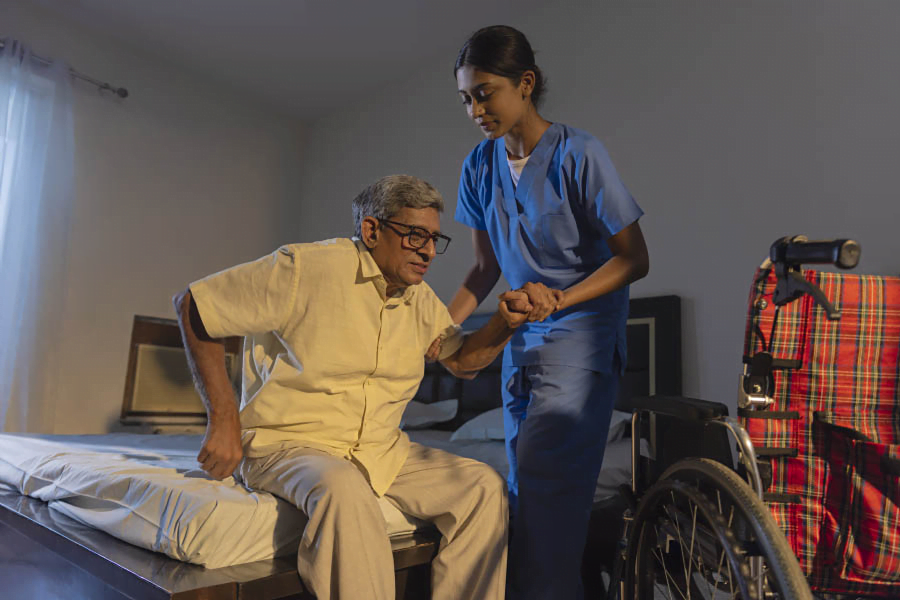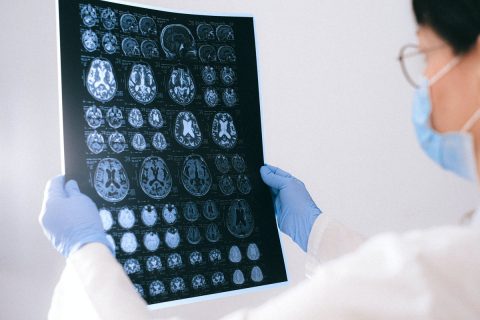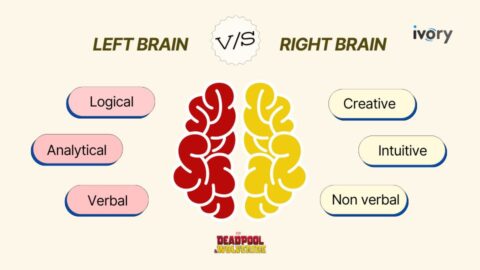Medically Reviewed by:
Khushal Girigosavi, a peer reviewer at the Cureus Journal with numerous research papers to his name, maintains high standards in medical research.
Imagine waking up one day and not recognising the faces of your loved ones. Or struggling to remember how to perform everyday tasks that were once second nature to you. These are just a few of the challenges that older adults with dementia face daily. Dementia, a neurological condition characterised by a decline in cognitive function, is becoming increasingly prevalent among the elderly population in India.
Dementia not only affects the individuals who have been diagnosed with it but also has a profound impact on their families and caregivers. As a society, we need to understand the impact of dementia on older adults in India, as well as the factors that contribute to its prevalence.
According to recent studies, dementia affects nearly 8.8 million people older than 60 years in India. The ageing population, coupled with an increased awareness and diagnosis of dementia, has brought the issue to the forefront of public health concerns in India.
In this blog, we will dive into how dementia is impacting older adults in India. We will explore the prevalence of dementia among Indian seniors, discuss the challenges faced by those living with dementia, and highlight the importance of early detection and proper care.
Together, let’s dive into the world of dementia and work towards creating a better future for older adults dealing with this complex neurological disorder.
Challenges faced by older adults with dementia
Older adults grappling with dementia encounter a spectrum of challenges that extend beyond their personal struggles. Some of these challenges have been listed below:
- Memory challenges: Significant memory loss disrupts the ability to recall routine details, impacting daily life.
- Cognitive impairment: Increasing confusion hinders decision-making and problem-solving skills.
- Communication hurdles: Difficulty expressing thoughts contributes to frustration and social isolation.
- Behavioural changes: Agitation or aggression poses challenges for both individuals and caregivers.
- Impaired functionality: Basic tasks become formidable challenges, affecting overall independence.
- Social isolation: Struggles with communication lead to withdrawal, intensifying loneliness.
- Caregiver struggles: Emotional tolls and practical challenges create a demanding role for caregivers.
- Emotional impact: Witnessing a loved one’s cognitive decline contributes to stress and burnout.
- Resource challenges: Uneven access to healthcare services exacerbates difficulties for individuals and families.
- Need for Holistic Support: A comprehensive approach, encompassing medical care, caregiver education, and community understanding, is crucial to navigating the complexities of dementia with empathy and effective support.
| Did you know? Dementia is often associated with ageing, but it can affect individuals in their 40s and 50s, a condition known as early-onset dementia. Age is a risk factor, but it’s crucial to recognise that dementia can impact people in their middle age. |
Stigma and lack of awareness
In India, dementia poses a significant challenge due to the stigma linked with mental health issues. Many people misunderstand dementia, leading to discrimination against and isolation of affected individuals. This stigma is rooted in outdated beliefs, associating cognitive decline with personal failings.
Unfortunately, there’s a widespread lack of awareness about dementia and its impact on cognitive health in Indian seniors. This worsens the difficulties faced by those living with dementia, hindering timely support and intervention. Addressing these challenges requires education about dementia, dispelling misconceptions, and fostering open conversations about cognitive health.
Limited access to care and support
Indian seniors with dementia encounter significant challenges accessing specialised healthcare services. A notable scarcity of geriatric specialists and dedicated dementia care centres exacerbates the difficulties faced by individuals and their families in receiving timely and appropriate care. This shortage hampers the diagnostic process, impedes the initiation of suitable treatments, and creates hurdles in securing continuous support.
The limited infrastructure and resources devoted to dementia care contribute to a gap in the healthcare system, hindering the effective management of this condition. Families often find themselves navigating a complex maze with few available options for professional guidance. This scarcity not only delays the crucial early stages of diagnosis but also limits the availability of comprehensive care tailored to the unique needs of individuals living with dementia.
| A quick tip: Make dementia care engaging and enjoyable with simple tips! Use memory jars, play soothing music, and incorporate sensory stimulation for a comforting experience. Enjoy games, implement visual aids, and connect with nature. Follow a structured routine, explore adaptive technology, and embrace laughter therapy to create positive and uplifting moments in daily caregiving. |
Addressing the impact of dementia
Strides are being taken to confront the challenges posed by dementia on older adults in India. Various organisations and initiatives have emerged, dedicated to heightening awareness, offering assistance to caregivers, and championing improved healthcare services. These efforts are pivotal in fostering a more compassionate and understanding approach toward individuals grappling with dementia.
By focusing on awareness campaigns, these initiatives aim to dispel misconceptions and reduce the associated stigma. Equally significant is the support provided to caregivers who play a crucial role in the well-being of those with dementia, offering resources and guidance to alleviate the emotional and practical burdens they bear.
The advocacy for enhanced healthcare services underscores the importance of a comprehensive and accessible support system. In this collaborative effort, it is essential for society at large to grasp the unique needs of individuals with dementia. By cultivating empathy, understanding, and active participation, we can collectively contribute to creating an inclusive and supportive environment where individuals with dementia can lead more dignified and fulfilling lives.
| Myth: Nothing can be done to prevent or slow down dementia. Fact: Adopting a healthy lifestyle, including regular exercise, a balanced diet, and mental stimulation, can contribute to cognitive health and may help reduce the risk or delay the onset of dementia. |
In conclusion, we must understand the impact that dementia has on older adults in India. Dementia is not just a normal part of ageing, but rather a neurological condition that requires attention and support. By delving into this topic, we have gained valuable insights into the challenges faced by individuals suffering from dementia, as well as their families and caregivers.
Throughout this blog, we have explored the prevalence of dementia in India and its effects on brain health, memory loss, and cognitive age in Indian seniors. We have discussed the importance of early detection and diagnosis, as well as the available treatment options and support services. It is clear that knowledge is power when it comes to managing this condition, underscoring the critical role of awareness in maintaining cognitive health and mitigating the impacts of dementia.
If you or a loved one suspect any signs of cognitive decline or memory loss, it is essential to seek professional help. There are numerous tests available for self-diagnosis that can help you better understand your condition.
Remember, early intervention can make a significant difference in managing dementia symptoms and improving quality of life.
If you’re seeking more information about dementia or cognitive health, visit Ivory. Our team of experts is committed to offering valuable support and resources. Explore cognitive tests and discover comprehensive insights for individuals living with dementia and their loved ones.




